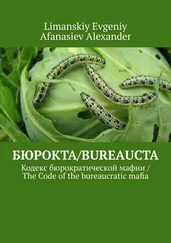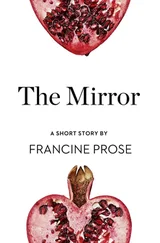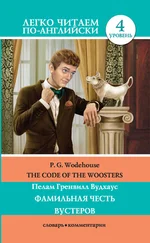The signal was stronger than it had been in Krucevic's camp.
“Don't leave me,” Jozsef said weakly. She looked down and found his eyes upon her. They were bright with fever and anguish and death.
They struggled across the field together, in search of the signal's source. It was 3:07 A.M. In a little while the birds would sing.
“ Mrs. Payne .”
Nell Forsyte, the same Nell Forsyte she had seen murdered in Pariser Platz; Sophie heard her voice with a flush of joy. She loved Nell. Nell had died for her, a senseless sacrifice. But they would be together always. She reached out her arms to hold Nell close. It was so dark in here. She had thought she was buried alive once, in the trunk of a car.
“ Mrs. Payne. Can you hear me ?”
She tried to open her lips. She may have moved her head. A faint sound, like the mewling of a cat. Then a steel rod was thrust under her back, agony exploded in her skull. Blood surged from her abdomen to her mouth, flooding between her lips. She choked on the words she needed to say.
Someone was crying. Small, little-boy fingers fluttering on her cheek. She would kiss Peters knee and make it better again.
Mrs. Payne , Nell called again, with that gentle insistence of the professional bodyguard, the untitled nanny.
I'm coming , Sophie answered gaily, and took one last look at her reflection in the golden mirror. It was hard to see anything at Malvern tonight. Especially from such a distance.
Panicked, Caroline searched for a pulse in the wrist and neck. She laid her head on the woman's blood-soaked sweatshirt and listened. She felt with her fingertips for a wisp of breath, frantic to snatch this life back — for she had found Sophie Payne alive, and the woman had slipped through her fingers. Water in a bowl of sand.
She stared down at the Vice President and thought of Eric, whom she had failed.
Not Jack Bigelow or Dare Atwood or even, really, Sophie herself — but Eric, who had placed the map and the transmitter and the woman's life in her hands.
Caroline wasted no time debating whether such a burden was fair. She did not hate him for it. It was the burden she had chosen.
She closed Sophie's eyes and left her alone at the base of the ladder. Without help from Sarajevo, there was nothing else she could do. Then she climbed slowly toward the surface, her left hand cramping on the ladders iron rungs. Tears seethed at the back of her throat.
“You found her?” Jozsef asked. He was huddled against the stile near the iron manhole cover, filthy and stuttering with cold.
“We should hurry and get help,” Caroline told him.
He sat up, eyes vivid with hope.
“She's alive?”
Caroline opened her mouth, then shut it again. Not for this boy the kind prevarication, the words better left unsaid. She shook her head.
He went very still. Everything in his face died. Caroline crouched down and drew him close.
Terrible, these tears so long unshed, falling now on a stranger's neck. The fierce, inhuman sobbing of grief. Jozsef wrapped his arms around her and said nothing while she cried.
At 3:32 a.m. the first wave of NATO helicopters thundered overhead.
Four
The White House, 12:34 a.m.
Jack Bigelow got the news from the White House Situation Room two minutes after midnight. He had attended a reception f or the president of Somalia; he had listened to a large young soprano sing arias in Italian; he had stood near his wife and smiled tirelessly into the eyes of people whose names he occasionally remembered. Now he sat alone with his bow tie undone and his dress shirt half open, a glass of ice water in his hand. He was reading three paragraphs of an article on the backswing in Golf magazine.
The news came with a ring of his internal phone and the hesitant voice of a detailee from the State Department. Dare Atwood, she said, was on her way over .
Bigelow closed the magazine, his forefinger resting for an instant on its glossy cover; then he whipped off his tie and dress clothes and threw on a polo shirt and khakis. He would have to call her son. Peter had arrived at his mother's residence — the Naval Observatory — that afternoon. Should he do it now? Or let the boy sleep? Terrible, if Peter heard it first from a television screen. Like the outcome of a close election.
He fumbled with his belt buckle, and then his fingers stilled. Sophie was dead. Throughout each hour of the past five days, he had known it was a possibility. But the fact of her death threw his crisis management in a harsher light. Death demanded reevaluation. Where had they gone wrong? The pundits would certainly ask. And the next question was inevitable: Who would pay?
“So Krucevic is dead?”
“We have confirmation of that, yes. From Caroline Carmichael.”
“The woman who found Sophie.”
“My analyst,” Dare Atwood amended. “And our Budapest station managed to collect a remarkable amount of intelligence from... the 30 April bunker in Hungary.”
This was technically true; she saw no reason to explain exactly how Eric's disk had survived the explosion.
“We're rolling up Krucevic's networks all over the world. Thirty-five arrests have already been made, in fourteen raids.”
“Do we have enough to screw Fritz Voekl?” Bigelow asked pensively.
“I believe we do. He's clearly implicated in the VaccuGen mumps scandal — the records of E-mail correspondence between the chancellor and Mian Krucevic confirm his full knowledge and support of the vaccination campaign. And then there's the Brandenburg dump.”
“What dump?”
“Voekl ordered all evidence from the 30 April bombing destroyed. Our station chief in Berlin, Wally Aronson, has found out why.”
“Go on,” Bigelow ordered.
“You may remember that Fritz Voekl got his political start running a munitions plant in Thuringia.”
“Best little gun shop in the GDR.”
“The FBI's forensic technicians have traced chemical residues from the explosive responsible for the Brandenburg Gate's destruction directly to plastic explosive produced in that plant.”
Bigelow whistled softly.
“It ain't exactly proof the man planned a hit on his own capital.. ..”
“And it won't be admissible in court. But its as close as we'll ever get to a smoking gun.”
The President swiveled in his desk chair thoughtfully.
“We're not goin' to court. Dare. What we want is Fritz Voekl outta office.”
“For that,” Dare replied, “you need only public outcry. Give the mumps epidemic to the press, Mr. President, and you'll have it.”
Bigelow glanced over at his DCI.
“We owe that much to Sophie. Having failed her in every other respect.”
Dare Atwood bowed her head.
“May I say, Mr. President, how deeply I regret the Vice President's death?”
The President stared out the Rose Garden window. At this hour of night, a spotlight lit the bare canes; they threw a shadow like barbed wire across the withered lawn.
“I know you did everything possible,” he said. “Don't know what else we coulda done. But I'm sure I'll be reading about this fiasco in the Washington Post for the next six months.”
So much , Dare thought, for mourning Sophie Payne.
“How much access should the Agency afford the press, Mr. President?”
He studied her.
“The Agency? Or your analyst — the Carmichael woman?”
“She's something of a heroine,” Dare observed delicately. “The fact of the Vice President's death takes nothing from the extraordinary courage and brilliance Ms. Carmichael displayed. That should not go unrecognized.”
Jack Bigelow considered the point. A heroine might be useful at dispelling the funk of failure. But they would have to be careful how they handled Carmichael.
Читать дальше
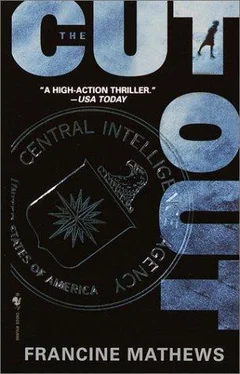





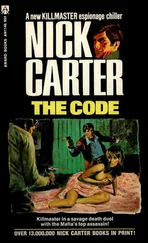
![Микки Спиллейн - Death of the Too-Cute Prostitute [= Man Alone]](/books/437201/mikki-spillejn-death-of-the-too-thumb.webp)
